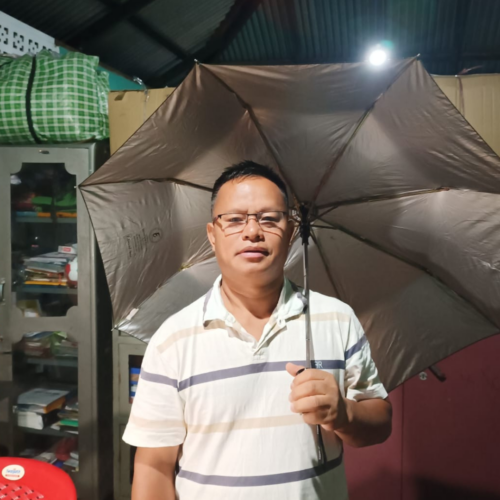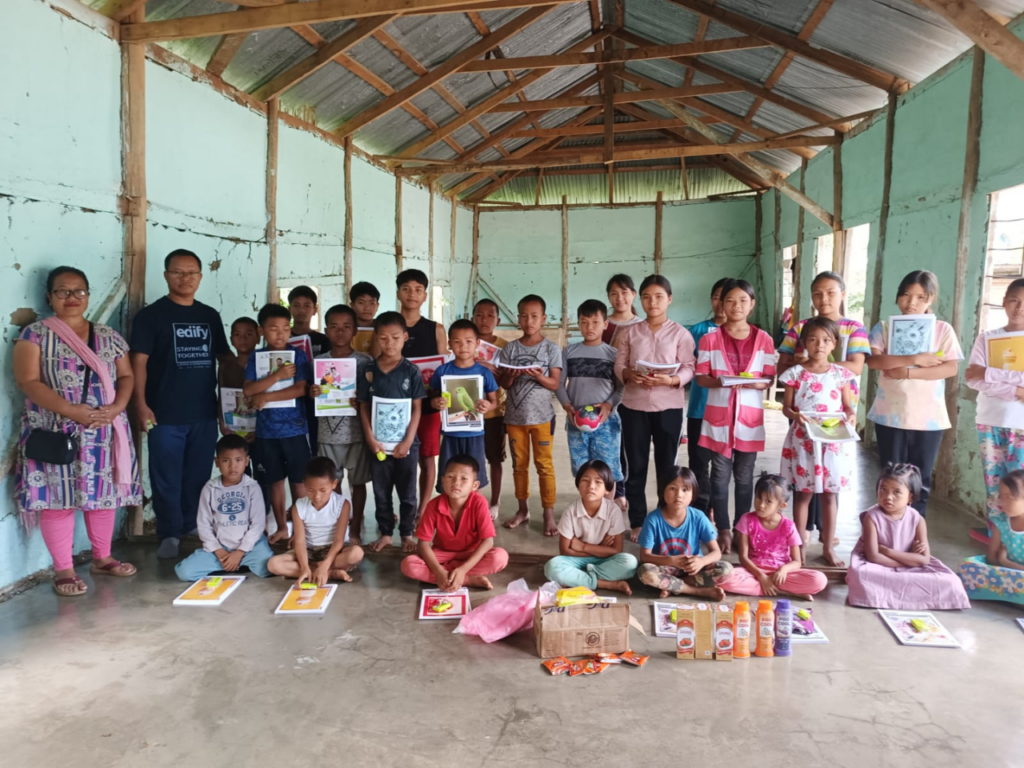Manipur ethnic violence continues, man and his family seek shelter in meager refugee camp
When I opened the door, a scene of unimaginable chaos unfolded before us. The streets, once peaceful, now buzzed with desperate survivors.
- 8 months ago
December 6, 2023

MANIPUR, India — This spring, violence broke out between the Meitei and Kuki tribes in Manipur, shattering years of peaceful coexistence. This upheaval, fueled by the government’s long-standing neglect of our state, plunged us into a reality we never imagined. Now, my family and I seek shelter in refugee camps, our lives disrupted by the unexpected chaos.
On May 3, 2023, darkness enveloped our town, shattering our tranquility. The very people we considered neighbors turned against us. They set our home ablaze and hurled stones at us, forcing my my wife, daughter, two sons, and me to hid under our bed. We spent that night gripped by fear, hoping to survive the onslaught. These attackers – once familiar faces – showed no mercy. They turned our peaceful town into a battleground, spurring violence and mistrust.
Read more conflict stories at Orato World Media
The brutality in Manipur shocked us as we hid inside our home
After spending a night in hiding, my family and I gathered our courage and stepped outside. When I opened the door, a scene of unimaginable chaos unfolded before us. The streets, once peaceful, now buzzed with desperate survivors. We stayed hidden in the dark, aware that any light could alert the attackers to our presence.
The brutality surrounding us felt shocking. Our neighbors transformed into violent assailants. They targeted women for their community affiliations and subjected them to horrific abuses. Men suffered beatings and brutal deaths. Fires consumed our homes and churches, erasing landmarks of our faith and community. We rushed back inside and sought refuge in our home.
On the third day, the Army intervened, bringing a ray of hope. They arrived and evacuated us to a camp, offering temporary safety. For five days, we relied on their supplies of food, water, and milk. They offered books for the children. Despite these provisions, confusion and unanswered questions plagued us. We found ourselves homeless – refugees in our own land – and we faced a new reality with no clear resolution in sight.
Refugees face harsh realities in Manipur’s relief camps: “Shock and grief filled those early days”
After our initial rescue, the army relocated us to a shelter not far from Imphal, the epicenter of the riots. Shock and grief filled those early days as we mourned lost loved ones and homes. We found ourselves dependent on the government and army for support, living in a shelter without any money.
Our new sleeping quarters in the shelter included large rooms, much like school classrooms. About 20 of us from three families shared one of these rooms. Larger families, or those with more than six members, had their own rooms or shared with another small family. Others stayed in a community hall, each person assigned a floor space and basic eating utensils.
In just this part of Manipur, we saw 65 relief camps. The sanitary conditions could not meet expectations, with one toilet often shared by 10 people. Despite the poor state of the rooms and toilets, they offered us safety from the chaos outside. The government provides basic food like dal, rice, potatoes, and occasionally cooking oil. It’s not much, but we appreciate the external aid and the government-provided clothing, even if it’s all the same size and type.
Typically, winter in our homeland is a joyful time of year as we celebrate the Gaan Ngai festival. This year, however, we dread the cold. Each refugee relies on one low-quality blanket, hardly enough for the freezing temperatures that can reach minus 13 degrees.
We scramble for basic necessities and the harsh reality tests our resilience
Living through a crisis of this magnitude becomes hard to fathom. In our camp, life becomes a struggle. We scramble for basic necessities like blankets, underwear, and supplements for pregnant and breastfeeding women. Medicines for heart disease, diabetes, and dialysis become difficult to obtain. Our children, like my twelfth-grade daughter, missed their exams, their education delayed. I constantly worry about the future of my two sons who are 18 and 15.
Amidst all this, my wife, part of the Kuki community, remains silent. She finds some small relief in simply being alive. Confronted with our children’s plight, I pushed our shelter community to action. We reached out for financial help from friends and family. Our children needed support, and we had to make it happen. Our plea echoed beyond Manipur, attracting generous donations of money, food, clothes, medicine, and books for the kids.
Adapting to this new, harsh reality tests our resilience every day. Dreams of rebuilding our homes hover like distant stars in the night. Six months of violence have passed, and the help from the government and others feels like a drop in the ocean. What we truly seek is justice – a chance to heal and rebuild the broken spirit of our Kuki community.











































































































































































































































































































































































